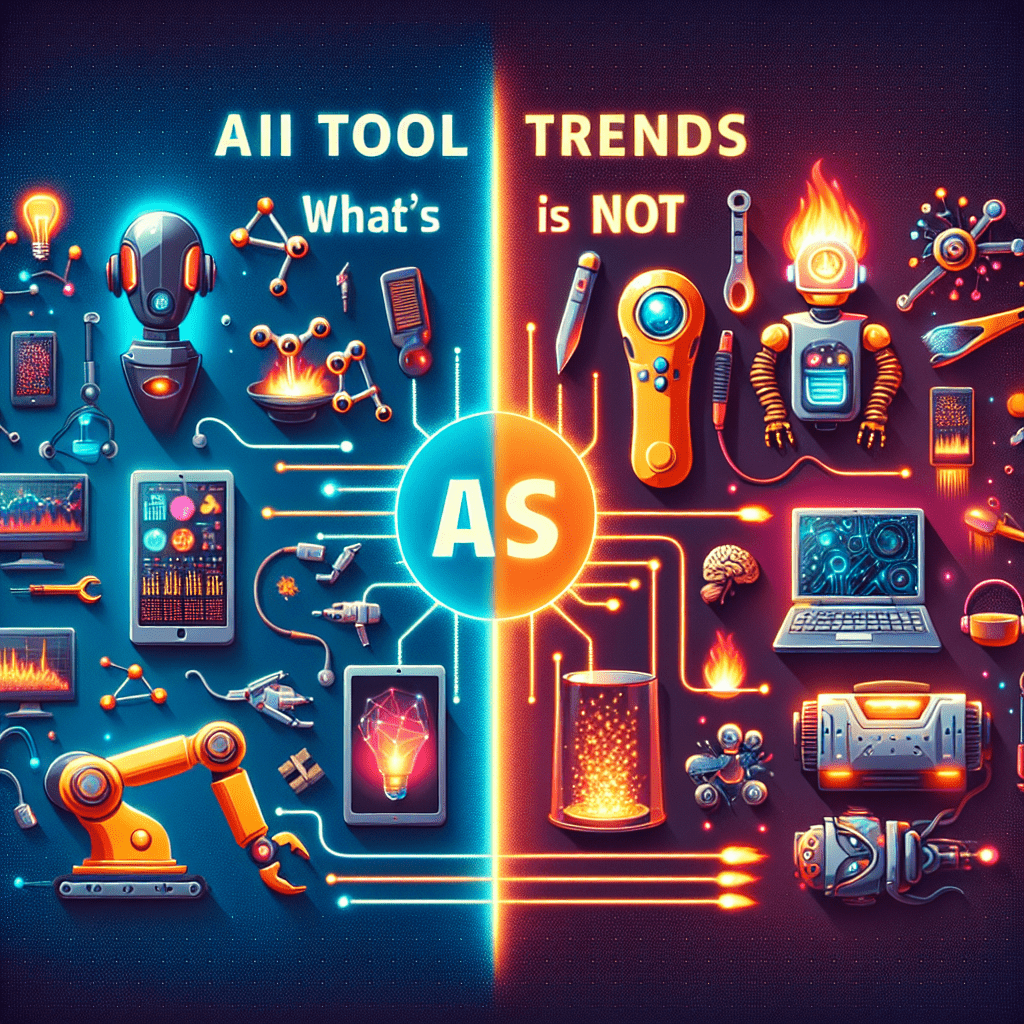Artificial Intelligence (AI) has been one of the most significant technological advancements in recent years. With the rapid development of AI tools and technologies, businesses and industries are constantly looking for innovative solutions to automate tasks, improve efficiency, and gain a competitive edge in the market. In this article, we will explore some of the hottest AI tool trends and what’s not so popular in the world of artificial intelligence.
Hot AI Tool Trends
1. Natural Language Processing (NLP): NLP is a branch of AI that focuses on enabling computers to understand, interpret, and generate human language. NLP technologies like chatbots, virtual assistants, and language translation tools are increasingly being used by businesses to improve customer service, automate communication, and analyze text data.
2. Machine Learning (ML): ML is a subset of AI that allows computers to learn from data and make predictions without being explicitly programmed. ML algorithms are used in various applications such as recommendation systems, fraud detection, image recognition, and predictive analytics.
3. Computer Vision: Computer vision is a field of AI that enables computers to interpret and analyze visual information from the real world. Applications of computer vision include facial recognition, object detection, autonomous vehicles, and medical image analysis.
4. Automated Machine Learning (AutoML): AutoML is a set of tools and processes that automate the process of building and deploying machine learning models. AutoML platforms make it easier for non-experts to create and deploy ML models without extensive programming knowledge.
5. Deep Learning: Deep learning is a type of ML that uses artificial neural networks to learn complex patterns and relationships from data. Deep learning models have achieved remarkable success in image and speech recognition, natural language processing, and game playing.
Not-So-Hot AI Tool Trends
1. Blockchain and AI Integration: Despite the initial hype, the integration of blockchain and AI technologies has not gained widespread adoption in the industry. Challenges such as scalability, interoperability, and regulatory concerns have hindered the uptake of blockchain-based AI solutions.
2. Explainable AI: Explainable AI, which aims to make AI algorithms more transparent and interpretable, has not received as much attention as other AI tool trends. While explainable AI is crucial for building trust and understanding in AI systems, it remains a niche area of research and development.
3. Quantum Computing and AI: Quantum computing has the potential to revolutionize AI by solving complex problems at a much faster rate than classical computers. However, the integration of quantum computing and AI is still in its early stages, and practical applications are limited to specialized research projects.
4. AI Ethics and Bias Mitigation: As AI technologies continue to evolve, concerns about ethics, fairness, and bias in AI systems have become more prominent. While efforts are being made to address these issues, AI ethics and bias mitigation tools have not yet reached mainstream adoption.
5. AI Hardware Accelerators: The development of specialized hardware accelerators for AI tasks, such as GPUs and TPUs, has been a hot trend in recent years. However, the market for AI hardware accelerators is becoming saturated, and new players are facing challenges in differentiating their products in a competitive landscape.
Conclusion
In conclusion, AI tool trends are constantly evolving, with some technologies gaining widespread adoption and others struggling to find their place in the market. Businesses and industries must carefully evaluate the potential benefits and limitations of different AI tools to make informed decisions about implementation and investment. As AI continues to reshape the way we work and live, staying abreast of the latest trends and developments in artificial intelligence is essential for staying competitive in a rapidly changing technological landscape.
FAQs
Q: What are some popular AI tools for businesses?
A: Popular AI tools for businesses include chatbots, virtual assistants, predictive analytics platforms, and image recognition software.
Q: How can businesses address ethical concerns in AI systems?
A: Businesses can address ethical concerns in AI systems by implementing transparency, accountability, and fairness measures, conducting regular audits of AI algorithms, and providing training on AI ethics for employees.
Q: What are some challenges in adopting AI tools in industries?
A: Some challenges in adopting AI tools in industries include lack of data quality, skilled talent shortages, regulatory hurdles, and integration with existing systems.
Quotes
“AI is the new electricity. Just as electricity transformed numerous industries a century ago, AI will revolutionize the world in the coming decades.” – Andrew Ng
#Tool #Trends #Whats #Hot #Whats #World #Artificial #Intelligence


